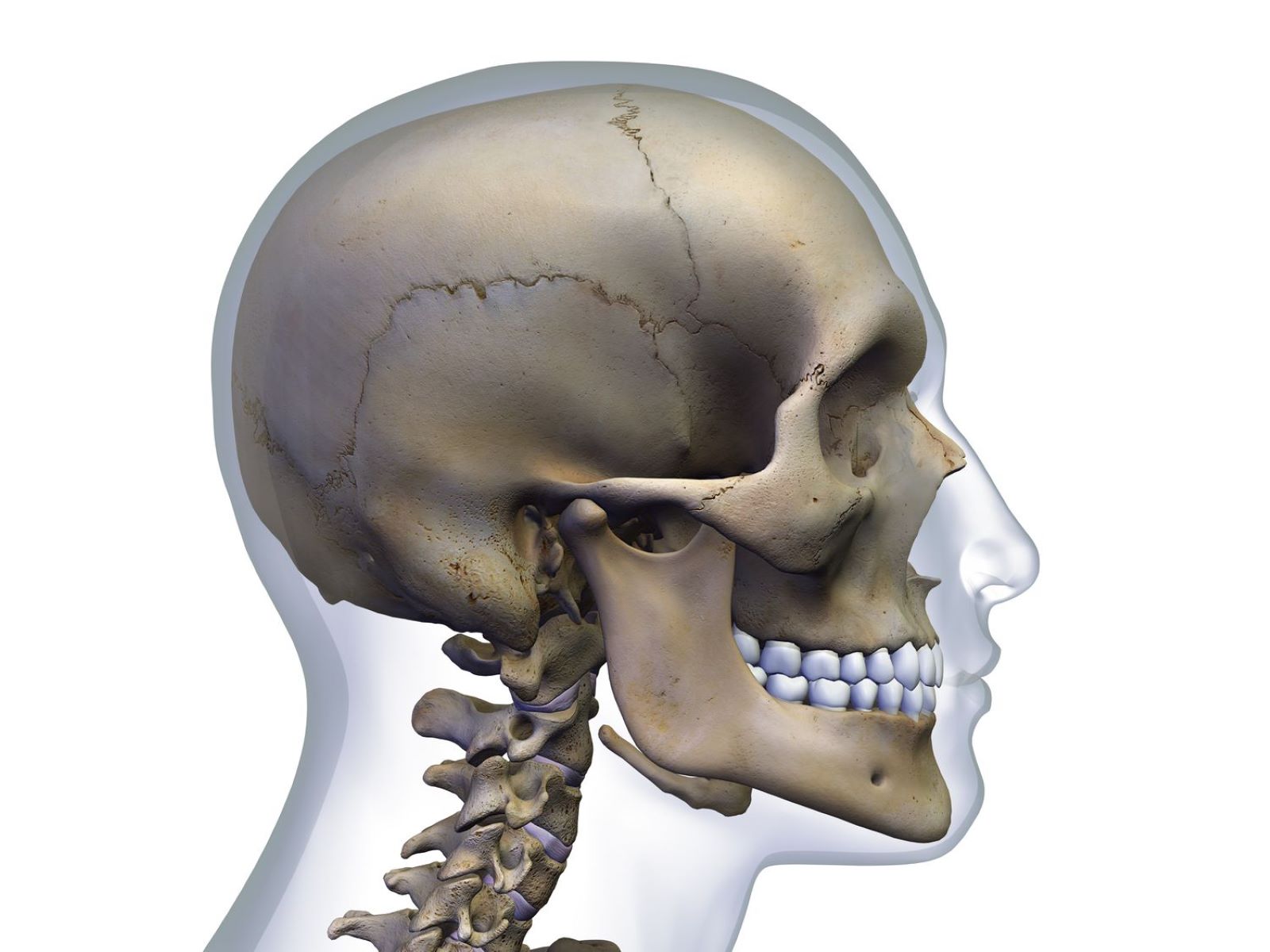Home>Health and Wellness>Discover The Surprising Link Between Diuretics And Shedding Pounds!


Health and Wellness
Discover The Surprising Link Between Diuretics And Shedding Pounds!
Published: February 5, 2024
Learn how diuretics can aid in weight loss and improve your health and wellness. Uncover the surprising connection between diuretics and shedding pounds!
(Many of the links in this article redirect to a specific reviewed product. Your purchase of these products through affiliate links helps to generate commission for Regretless.com, at no extra cost. Learn more)
Table of Contents
Introduction
When it comes to shedding those stubborn pounds, the journey often leads individuals to explore various methods and supplements. One such avenue that has garnered attention in the realm of weight loss is the use of diuretics. The concept of diuretics and their potential link to shedding pounds has sparked curiosity and interest among those seeking effective strategies for weight management.
As we delve into the realm of diuretics and their impact on weight loss, it is essential to unravel the underlying mechanisms and potential benefits, as well as the associated risks and considerations. By understanding the role of diuretics in the context of weight loss, individuals can make informed decisions and gain insights into this intriguing aspect of health and wellness.
The journey to uncover the surprising link between diuretics and shedding pounds promises to unravel a multifaceted landscape, shedding light on the intricate interplay between these compounds and the human body. By embarking on this exploration, we aim to unravel the potential implications of incorporating diuretics into weight management strategies, offering a comprehensive perspective on this intriguing topic.
What are Diuretics?
Diuretics, commonly referred to as "water pills," are a class of medications or substances that promote diuresis, which is the increased production of urine. These compounds work by aiding the kidneys in eliminating excess sodium and water from the body through urine excretion. The fundamental mechanism of diuretics involves altering the normal functioning of the renal tubules, thereby influencing the reabsorption of electrolytes and water. This process ultimately leads to enhanced urine production, facilitating the removal of surplus fluids from the body.
There are different categories of diuretics, each exerting its effects through distinct mechanisms. Thiazide diuretics, for instance, act on the distal convoluted tubule of the kidneys, promoting the excretion of sodium and water. Loop diuretics, on the other hand, target the ascending loop of Henle, facilitating the elimination of sodium, chloride, and water. Potassium-sparing diuretics work within the collecting ducts of the kidneys, promoting diuresis while minimizing potassium loss. Additionally, natural diuretics, such as certain foods and beverages, possess mild diuretic properties and can aid in fluid balance regulation.
The diverse spectrum of diuretics encompasses pharmaceutical medications prescribed to manage conditions like hypertension, edema, and heart failure. Furthermore, individuals may also encounter over-the-counter diuretic supplements marketed for their potential to alleviate water retention and promote weight loss.
In the context of weight management, diuretics have garnered attention due to their perceived ability to reduce water weight and bloating. While these effects may contribute to temporary weight loss, it is crucial to recognize the distinction between shedding excess fluids and achieving sustainable fat loss. Understanding the role of diuretics in modulating fluid balance is essential for discerning their potential impact on weight management strategies.
As we unravel the multifaceted nature of diuretics, it becomes evident that these compounds play a pivotal role in medical interventions and wellness practices. The intricate mechanisms through which diuretics influence fluid dynamics and electrolyte balance underscore their significance in various health contexts, offering a compelling avenue for exploration and understanding.
How Diuretics Help with Weight Loss
Diuretics have garnered attention for their perceived role in weight loss, particularly in relation to shedding excess water weight. The mechanism through which diuretics exert their influence on weight management primarily revolves around their ability to promote diuresis, leading to increased urine production and subsequent reduction in fluid retention. By facilitating the elimination of surplus fluids, diuretics may contribute to a transient reduction in body weight, offering individuals a sense of immediate progress in their weight loss endeavors.
One of the key ways diuretics aid in weight loss is by targeting water retention, which can manifest as bloating and puffiness. This retention often occurs due to various factors, including dietary habits, hormonal fluctuations, and certain medical conditions. By enhancing the excretion of water and sodium through urine, diuretics can alleviate this temporary water weight, providing individuals with a slimmer and more defined physique. This effect is particularly noticeable in bodybuilding and fitness circles, where individuals seek to achieve a lean and sculpted appearance for competitions or events.
Furthermore, the reduction in water weight induced by diuretics may also lead to a perceived improvement in muscle definition. As excess fluids are eliminated from the body, the prominence of muscle tone and definition becomes more apparent, contributing to a leaner and more chiseled aesthetic. This visual impact is often sought after by individuals aiming to showcase their physique, such as athletes and bodybuilders, highlighting the allure of diuretics in enhancing physical appearance.
It is important to note, however, that the weight loss attributed to diuretics primarily encompasses water weight and does not equate to sustainable fat loss. While the initial reduction in body weight may be gratifying, it is crucial to recognize that this effect is transient and does not reflect a meaningful decrease in body fat. Sustainable weight management and fat loss entail comprehensive lifestyle modifications, including dietary adjustments, regular physical activity, and behavioral changes, which extend beyond the temporary impact of diuretics on fluid balance.
In the realm of weight loss, diuretics offer a nuanced contribution by addressing transient water retention and enhancing the visual aspects of physique. However, it is imperative for individuals to approach the use of diuretics with caution, considering the potential risks and limitations associated with these compounds. By gaining a comprehensive understanding of the role of diuretics in weight management, individuals can make informed decisions and cultivate holistic approaches to achieving sustainable and health-focused weight loss goals.
The Surprising Link Between Diuretics and Shedding Pounds
The intriguing connection between diuretics and shedding pounds unveils a multifaceted landscape, encompassing both the allure and complexities of utilizing these compounds in the pursuit of weight management. While diuretics are commonly associated with alleviating water retention and promoting fluid balance, their impact on shedding pounds delves into a realm of transient weight reduction and visual enhancement.
One of the surprising aspects of the link between diuretics and shedding pounds lies in the immediate effect on body weight. Diuretics, by facilitating the elimination of excess fluids, can lead to a discernible reduction in body weight, offering individuals a sense of progress in their weight loss journey. This effect is particularly pronounced in scenarios where individuals seek to achieve a leaner and more defined physique for specific events or presentations, emphasizing the visual impact of diuretics in enhancing physical appearance.
Moreover, the perceived improvement in muscle definition resulting from the reduction in water weight further accentuates the surprising link between diuretics and shedding pounds. As surplus fluids are expelled from the body, muscle tone and definition become more prominent, contributing to a leaner and more sculpted aesthetic. This visual transformation underscores the appeal of diuretics in enhancing the perceived physical attributes, particularly in the realms of fitness, bodybuilding, and aesthetic presentations.
However, it is crucial to discern the distinction between shedding water weight through diuretics and achieving sustainable fat loss. While the immediate reduction in body weight may be gratifying, it is imperative to recognize that this effect primarily encompasses the elimination of excess fluids and does not equate to meaningful fat loss. Sustainable weight management and fat reduction necessitate holistic lifestyle modifications, including dietary adjustments, regular physical activity, and behavioral changes, which extend beyond the transient impact of diuretics on fluid balance.
As the surprising link between diuretics and shedding pounds unfolds, it underscores the nuanced role of these compounds in weight management, offering individuals a glimpse into the intricate interplay between fluid dynamics and visual perception. By navigating this landscape with discernment and understanding, individuals can gain insights into the potential implications of incorporating diuretics into their weight management strategies, fostering informed decisions and holistic approaches to achieving sustainable and health-focused weight loss goals.
Risks and Side Effects of Using Diuretics for Weight Loss
The utilization of diuretics for weight loss purposes warrants a comprehensive understanding of the associated risks and potential side effects. While diuretics may offer transient benefits in reducing water weight, their usage for weight loss endeavors is not without potential drawbacks and health implications.
One of the primary risks associated with using diuretics for weight loss pertains to electrolyte imbalance. As diuretics promote the excretion of fluids, they can also lead to the loss of essential electrolytes, such as potassium, sodium, and magnesium, through urine. This imbalance in electrolyte levels can give rise to adverse effects, including muscle cramps, weakness, irregular heartbeat, and in severe cases, it can lead to electrolyte disturbances, posing significant risks to cardiovascular and neuromuscular function.
Furthermore, the reliance on diuretics for weight loss can engender dehydration, particularly when the intake of fluids does not compensate for the increased urine production induced by these compounds. Dehydration can manifest as dizziness, lightheadedness, dry mouth, and reduced urine output, signaling an imbalance in the body's fluid equilibrium. Prolonged or severe dehydration can have detrimental effects on overall health, impacting cognitive function, kidney function, and cardiovascular stability.
In addition to electrolyte imbalance and dehydration, the prolonged or excessive use of diuretics for weight loss can exert strain on the kidneys. The enhanced excretion of fluids places a burden on the renal system, potentially compromising its normal functioning over time. This strain on the kidneys can contribute to renal insufficiency and other kidney-related complications, underscoring the importance of cautious and informed utilization of diuretics for weight management.
Moreover, the reliance on diuretics as a primary strategy for weight loss can perpetuate a cycle of dependency and potential misuse. Individuals may become accustomed to the perceived immediate effects of diuretics on body weight, leading to a reliance on these compounds rather than adopting sustainable lifestyle modifications for long-term weight management. This dependency can culminate in a detrimental pattern of usage, overshadowing the pursuit of holistic and health-centric approaches to weight loss.
As the landscape of risks and side effects associated with using diuretics for weight loss unfolds, it becomes evident that cautious consideration and informed decision-making are imperative when contemplating the incorporation of diuretics into weight management strategies. By acknowledging the potential implications and exercising prudence in their usage, individuals can navigate the complexities of diuretics in the context of weight loss, fostering a balanced and health-focused approach to achieving sustainable wellness goals.
Conclusion
The exploration of the surprising link between diuretics and shedding pounds unveils a nuanced landscape, showcasing the intricate interplay between fluid dynamics, visual perception, and holistic weight management. While diuretics offer the potential for temporary reduction in water weight and visual enhancement, it is essential to approach their usage with discernment and understanding, considering the associated risks and limitations.
Diuretics, often recognized as "water pills," exert their influence by promoting diuresis, leading to increased urine production and the elimination of excess fluids from the body. This mechanism contributes to a discernible reduction in body weight, offering individuals a sense of immediate progress in their weight loss journey. The perceived improvement in muscle definition resulting from the reduction in water weight further accentuates the surprising link between diuretics and shedding pounds, particularly in the realms of fitness, bodybuilding, and aesthetic presentations.
However, it is crucial to recognize that the weight loss attributed to diuretics primarily encompasses water weight and does not equate to sustainable fat loss. The transient nature of this effect underscores the importance of adopting holistic lifestyle modifications, including dietary adjustments, regular physical activity, and behavioral changes, for long-term weight management and wellness.
The utilization of diuretics for weight loss purposes necessitates a comprehensive understanding of the associated risks and potential side effects. Electrolyte imbalance, dehydration, strain on the kidneys, and the risk of dependency underscore the considerations that individuals must weigh when contemplating the incorporation of diuretics into their weight management strategies.
In navigating the complexities of diuretics in the context of weight loss, individuals are encouraged to prioritize informed decision-making and a health-focused approach. By embracing holistic strategies that encompass sustainable lifestyle modifications and prudent usage of diuretics, individuals can embark on a journey towards achieving meaningful and health-centric weight management goals.
The surprising link between diuretics and shedding pounds offers a compelling avenue for exploration, underscoring the multifaceted nature of weight management and the diverse strategies that individuals may encounter in their quest for wellness. Through discernment, understanding, and a commitment to holistic well-being, individuals can navigate this landscape with clarity and purpose, fostering a balanced and informed approach to achieving sustainable and health-focused weight management goals.














